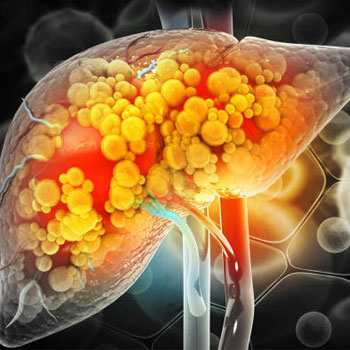What is cirrhosis?
Cirrhosis is a serious medical condition characterized by the scarring of the liver tissue. Over time, this scarring can lead to liver dysfunction and potentially life-threatening complications. Understanding the causes, symptoms, and treatment options for cirrhosis is crucial for early detection and management of this condition.
Cirrhosis is a progressive liver disease that occurs when healthy liver tissue is replaced by scar tissue. This scarring disrupts the normal functioning of the liver, impacting its ability to perform essential tasks such as detoxification, production of proteins, and metabolism of fats and carbohydrates. Cirrhosis is often considered the end stage of chronic liver disease and can result from various underlying causes.
What are the most common causes of liver cirrhosis?
Several factors can contribute to the development of cirrhosis, including:
- Chronic alcohol abuse: Excessive and prolonged alcohol consumption is one of the leading causes of liver cirrhosis in vijayawada. Alcohol damages liver cells, leading to inflammation and scarring over time.
- Hepatitis B and C: Chronic infections with hepatitis B or C viruses can cause liver inflammation and ultimately lead to cirrhosis if left untreated.
- Non-alcoholic fatty liver disease (NAFLD): NAFLD encompasses a range of conditions characterized by the accumulation of fat in the liver. In some cases, NAFLD can progress to cirrhosis, particularly in individuals with obesity, diabetes, or metabolic syndrome.
- Autoimmune hepatitis: This is a condition where the body's immune system mistakenly attacks the liver, leading to inflammation and eventual scarring.
- Genetic disorders: Certain genetic conditions, such as hemochromatosis, Wilson's disease, and alpha-1 antitrypsin deficiency, can predispose individuals to cirrhosis.
- Biliary atresia: This is a congenital condition characterized by the blockage or absence of bile ducts, leading to liver damage and cirrhosis, particularly in infants.

What are the symptoms of liver cirrhosis?
Cirrhosis often progresses slowly and may not cause noticeable symptoms in the early stages. However, as the disease advances, individuals may experience the following symptoms:
- Fatigue and weakness: Decreased liver function can lead to fatigue and weakness, even with minimal physical exertion.
- Jaundice: Yellowing of the skin and eyes occurs due to the buildup of bilirubin, a waste product normally processed by the liver. Get jaundice treatment in vijayawada from a top liver specialist in vijayawada.
- Ascites: Accumulation of fluid in the abdomen causes swelling and discomfort.
- Easy bruising and bleeding: Impaired liver function affects blood clotting, leading to easy bruising and prolonged bleeding.
- Itchy skin: Buildup of bile salts in the bloodstream can cause itching, often more pronounced at night.
- Loss of appetite & weight loss: Nausea, loss of appetite, and unintended weight loss are common symptoms of advanced cirrhosis.
What are the best treatment options for liver cirrhosis?
Treatment for cirrhosis aims to slow the progression of the disease, manage complications, and improve overall liver function. Depending on the underlying cause and severity of cirrhosis, treatment options may include:
- Lifestyle modifications: For individuals with alcohol-related cirrhosis, abstaining from alcohol is essential to prevent further liver damage.
- Medications: Certain medications may be prescribed by the best liver doctor in vijayawada to manage symptoms and complications of cirrhosis, such as diuretics to reduce fluid buildup or antiviral drugs to treat hepatitis B or C infections.
- Liver transplantation: In cases of advanced cirrhosis where liver function is severely compromised, liver transplantation surgery in vijayawada may be necessary to improve long-term survival.
- Management of complications: Treatment for complications such as ascites, hepatic encephalopathy, and variceal bleeding may involve medications, procedures, or surgery.
- Ongoing monitoring: Regular medical follow-ups are crucial for monitoring liver function, detecting complications early, and adjusting treatment as needed.
Cirrhosis is a serious condition that can have significant implications for overall health and quality of life. Understanding the causes, symptoms, and treatment options for cirrhosis is essential for early detection and effective management. By adopting lifestyle modifications, adhering to medical treatments, and seeking timely medical care, individuals with cirrhosis can optimize their outcomes and improve their prognosis.
